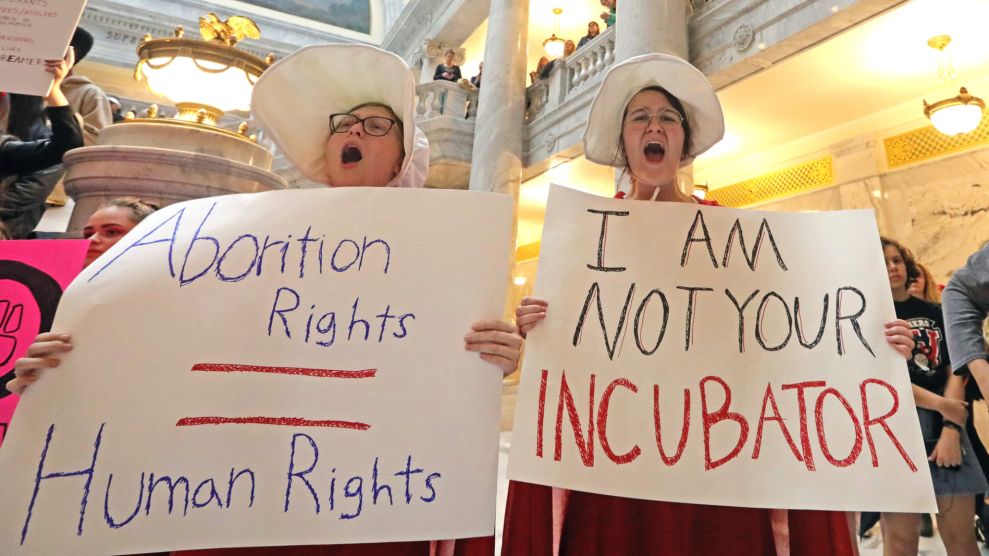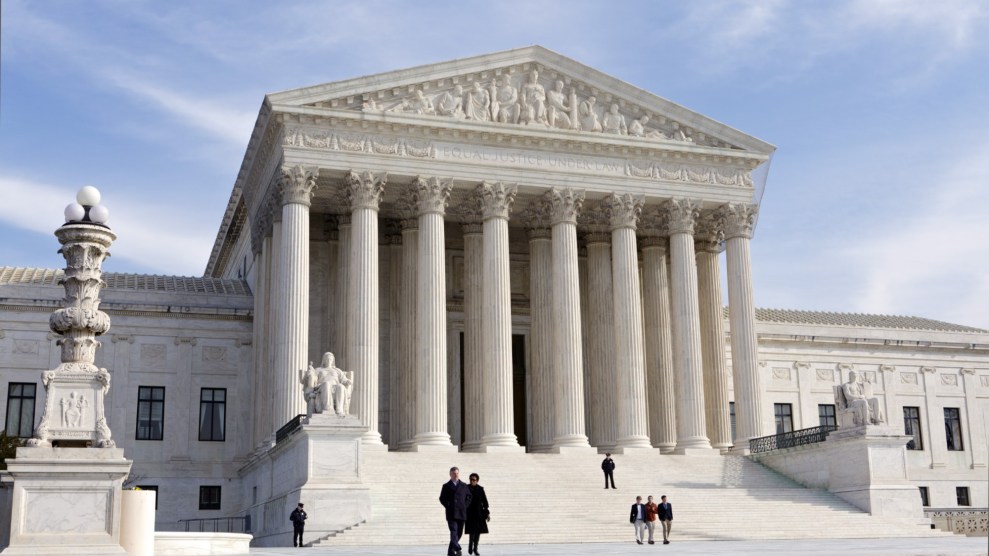
Activists protest abortion bans in the Utah State Capitol Rotunda on May 21, 2019, in Salt Lake City. Rick Bowmer/AP
On this day in 1973, the Supreme Court issued a decision that enshrined the constitutional right to an abortion in the landmark case Roe v. Wade. But with mounting attacks on abortion rights and the most conservative Supreme Court in modern history, states across the country have spent the 47th year of Roe scrambling to protect a women’s right to choose in the increasingly plausible event that the historic court decision is soon overturned.
“The reality is that the balance of the Supreme Court is not in our favor,” says Bonyen Lee-Gilmore, who works on state media campaigns for Planned Parenthood, adding, “We have to be prepared [if] Roe falls. That’s just part of the reality of living under the Trump administration.”
The effort began exactly one year ago, when New York became the first state to enshrine the right to an abortion in its state law, effectively codifying Roe v. Wade. (The law also ended New York’s ban on abortions after 24 weeks of pregnancy.) Since then, Illinois, Rhode Island, and Vermont have all passed similar laws protecting the right to an abortion. Michigan, New Jersey, and the District of Columbia are also looking at codifying the right to an abortion. In 2019, statehouses passed more legislation protecting or expanding abortion access than in the entire previous decade.
However, in the aftermath of the confirmation of two staunchly conservative justices to the Supreme Court in 2018, red states have been doing the opposite kind of preparation for a post-Roe world. In 2019, four states—Arkansas, Kentucky, Missouri, and Tennessee—passed legislation known as trigger laws, which would ban abortion if the Supreme Court overturned Roe, and 12 states passed abortion bans. In total, eight states now have trigger laws on the books, and 20 have laws that could be used to restrict the right to an abortion if Roe were overturned.
“States are going in widely divergent directions when it comes to both abortion rights and abortion access,” says Andrea Miller, president of the National Institute for Reproductive Health. “We have a group of states last year that were tripping over each other in a race to the bottom to try to ban abortion outright, and then we also had a real record year on the other side.”
According to Planned Parenthood, roughly 25 million women of reproductive age live in a state where abortion could be banned if Roe is overturned. Millions more are already forced to jump through hoops to access abortions, including 72-hour waiting periods, mandatory counseling, and invasive ultrasound procedures.
In March, the Supreme Court will hear its first abortion case since the confirmation of conservative justices Brett Kavanaugh and Neil Gorsuch. The case concerns a 2014 Louisiana law, which requires abortion providers to have admitting privileges at local hospitals, a stipulation that opponents of the bill argue would leave the state with only one provider for a population of more than 4.5 million. Although the justices are not expected to overturn Roe outright in this case, legal experts argue that if the court were to rule in favor of the law, access to abortion in states like Louisiana could exist in name only.











